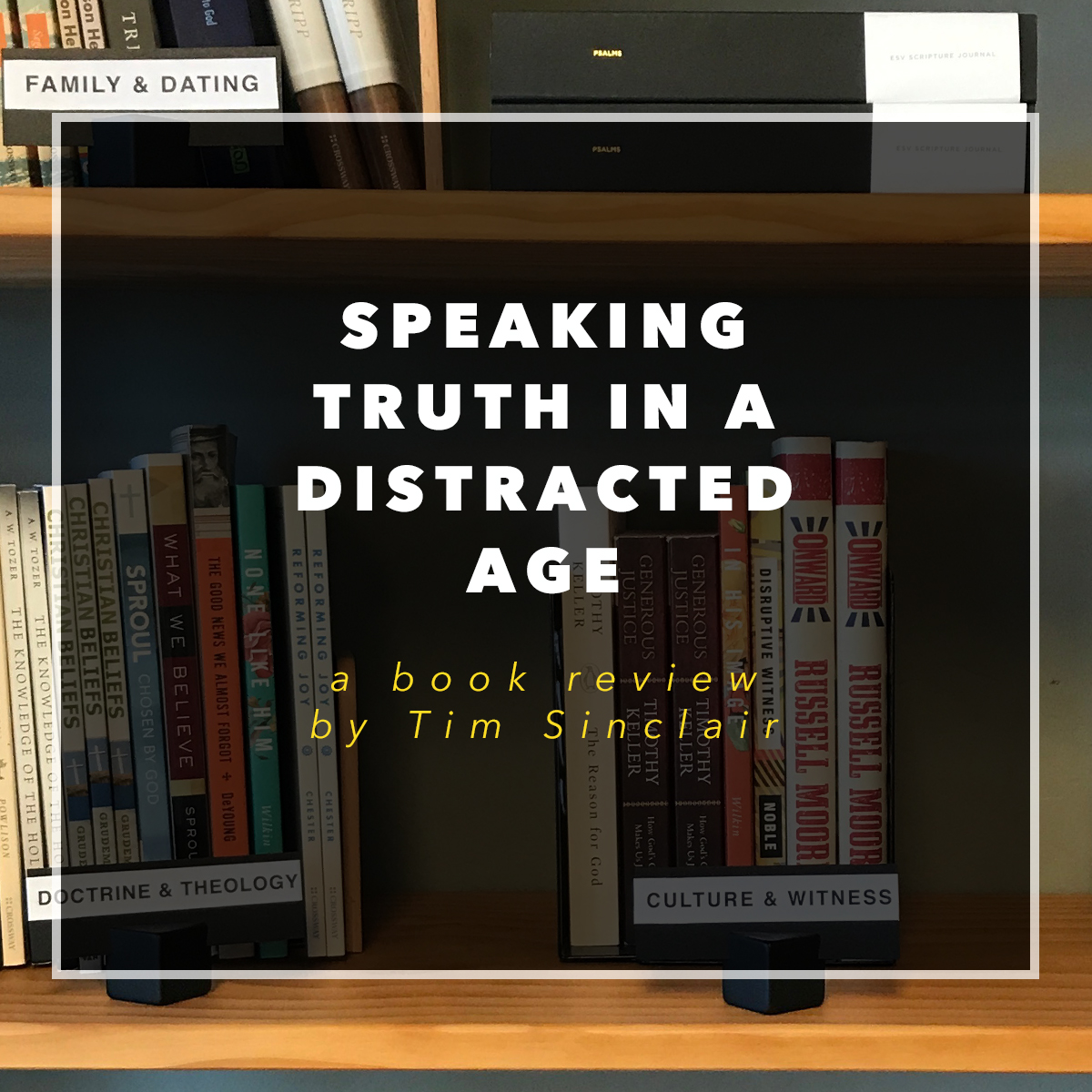
What if we are so accustomed to thinking about our beliefs in terms of personal preferences, like sports teams or our favorite brands, that when we try to share the gospel with someone, neither of us are actually thinking about the existence and loving lordship of a loving God who died on the cross for our sins? - Alan Noble
So begins Alan Noble's book Disruptive Witness: Speaking Truth in a Distracted Age. He makes the case that as Christianity has come to be seen in our culture as one viable choices among many, the key criteria for evaluating it is not whether its claims are objectively true. Rather, "the real criteria for the validity of a belief system is how quantifiably beneficial it is to us, personally." Therefore individuals use what they like about Christianity and simultaneously use contradictory ideas from other stories without feeling any need to harmonize them into a cohesive whole. Moreover, we (for we Christians don't stand outside wider cultural trends) spend less and less time in meditation about meaning in favor of immediately gratifying activities that resist reflection and meditation.
"The constant distraction of our culture shields us from the kind of deep, honest reflection needed to ask why we exist and what is true." I see this distraction in my own life when I go to pull up the Bible app on my iPad only to tap over to Twitter and get caught up with the latest political controversy. My contemplative quiet time has just been hijacked by the latest hot take. Instead of re-grounding myself in the the story of Creation, Fall, Redemption, Restoration, I am distracted by the tyranny of the urgent. And I am not alone; Noble's book is filled with concrete examples that flesh out this idea. He speaks of Christians posting verses on social media as a way of evangelizing or at least boldly signaling what they believe. But to their secular friends 'the images are indistinguishable from all the other random content we quickly share and forget on social media. The gospel appears thin, superficial, and inconsequential--just another image vying for our time.'
What we need then is something to cut through the error of relativism and the noise of distraction, something that helps us communicate the truth of the gospel both to unbelievers and our own souls.
What We Need
What we need then is something to cut through the error of relativism and the noise of distraction, something that helps us communicate the truth of the gospel both to unbelievers and our own souls. "The challenge for Christians in our time is to speak of the gospel in a way that unsettles listeners, that conveys the transcendence of God, that provokes contemplation and reflection, and that reveals the stark givenness of reality." He suggests personal, church, and cultural practices to achieve this objective. For example, he suggests cutting down on filler distractions and reflecting on the gifts of God; this is a message I deeply need to hear. I am a slave of so-called productivity, often with the rationalization of "redeeming the time." I can't drive a mile around the corner to the grocery store without putting on my audiobook. But who am I redeeming the time for? As Noble points out, "How on earth can we redeem redeem each moment for [God] if we are so absorbed by the next thing that we forget he exists at all?"
Disruptive Witness is generally stronger at diagnosing our culture's ills than curing them. At times I found myself frustrated, desiring more satisfying answers (just fix it!) to the wonderful issues Noble raises. But he refuses to give easy answers to complex questions. He recognizes that there are many obstacles preventing us from communicating the gospel effectively and that we often don't even acknowledge those obstacles, which only results in talking past each other. If you are looking for a book that has the perfect strategy for bringing all your secular friends to Christ, this is not the book for you. Noble recognizes that such a strategy doesn't exist.
With that in mind, this book is more about preparing the ground for a proverbial sowing of the Word than it is reaping a harvest of souls. But for the reader who wants to explore why and how we need to till that hard ground, there is much to be gained here.
Tim Sinclair lives in NW Tucson with his wife, Hannah. He has a burden to not only see the Bible faithfully taught but to increasingly apply the Bible's teachings in the context of the church community and mission to the world. Tim serves Holy Cross Church as a Ruling Elder and currently works as a financial advisor where he enjoys helping people build and implement financial plans that help them reach their goals.